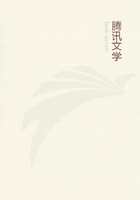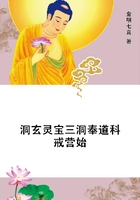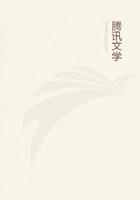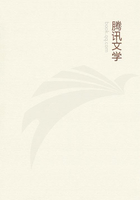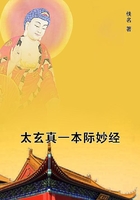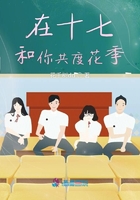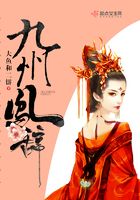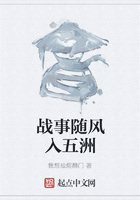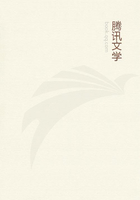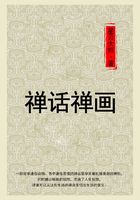For this reason also the question is asked, whether happiness is to be acquired by learning or by habituation or some other sort of training, or comes in virtue of some divine providence or again by chance. Now if there is any gift of the gods to men, it is reasonable that happiness should be god-given, and most surely god-given of all human things inasmuch as it is the best. But this question would perhaps be more appropriate to another inquiry;happiness seems, however, even if it is not god-sent but comes as a result of virtue and some process of learning or training, to be among the most godlike things; for that which is the prize and end of virtue seems to be the best thing in the world, and something godlike and blessed.
It will also on this view be very generally shared; for all who are not maimed as regards their potentiality for virtue may win it by a certain kind of study and care. But if it is better to be happy thus than by chance, it is reasonable that the facts should be so, since everything that depends on the action of nature is by nature as good as it can be, and similarly everything that depends on art or any rational cause, and especially if it depends on the best of all causes. To entrust to chance what is greatest and most noble would be a very defective arrangement.
The answer to the question we are asking is plain also from the definition of happiness; for it has been said to be a virtuous activity of soul, of a certain kind. Of the remaining goods, some must necessarily pre-exist as conditions of happiness, and others are naturally co-operative and useful as instruments. And this will be found to agree with what we said at the outset; for we stated the end of political science to be the best end, and political science spends most of its pains on making the citizens to be of a certain character, viz. good and capable of noble acts.
It is natural, then, that we call neither ox nor horse nor any other of the animals happy; for none of them is capable of sharing in such activity. For this reason also a boy is not happy; for he is not yet capable of such acts, owing to his age; and boys who are called happy are being congratulated by reason of the hopes we have for them.
For there is required, as we said, not only complete virtue but also a complete life, since many changes occur in life, and all manner of chances, and the most prosperous may fall into great misfortunes in old age, as is told of Priam in the Trojan Cycle; and one who has experienced such chances and has ended wretchedly no one calls happy.
10
Must no one at all, then, be called happy while he lives; must we, as Solon says, see the end? Even if we are to lay down this doctrine, is it also the case that a man is happy when he is dead?
Or is not this quite absurd, especially for us who say that happiness is an activity? But if we do not call the dead man happy, and if Solon does not mean this, but that one can then safely call a man blessed as being at last beyond evils and misfortunes, this also affords matter for discussion; for both evil and good are thought to exist for a dead man, as much as for one who is alive but not aware of them; e.g. honours and dishonours and the good or bad fortunes of children and in general of descendants. And this also presents a problem; for though a man has lived happily up to old age and has had a death worthy of his life, many reverses may befall his descendants- some of them may be good and attain the life they deserve, while with others the opposite may be the case; and clearly too the degrees of relationship between them and their ancestors may vary indefinitely. It would be odd, then, if the dead man were to share in these changes and become at one time happy, at another wretched; while it would also be odd if the fortunes of the descendants did not for some time have some effect on the happiness of their ancestors.
But we must return to our first difficulty; for perhaps by a consideration of it our present problem might be solved. Now if we must see the end and only then call a man happy, not as being happy but as having been so before, surely this is a paradox, that when he is happy the attribute that belongs to him is not to be truly predicated of him because we do not wish to call living men happy, on account of the changes that may befall them, and because we have assumed happiness to be something permanent and by no means easily changed, while a single man may suffer many turns of fortune's wheel. For clearly if we were to keep pace with his fortunes, we should often call the same man happy and again wretched, making the happy man out to be chameleon and insecurely based. Or is this keeping pace with his fortunes quite wrong? Success or failure in life does not depend on these, but human life, as we said, needs these as mere additions, while virtuous activities or their opposites are what constitute happiness or the reverse.
The question we have now discussed confirms our definition. For no function of man has so much permanence as virtuous activities (these are thought to be more durable even than knowledge of the sciences), and of these themselves the most valuable are more durable because those who are happy spend their life most readily and most continuously in these; for this seems to be the reason why we do not forget them. The attribute in question, then, will belong to the happy man, and he will be happy throughout his life; for always, or by preference to everything else, he will be engaged in virtuous action and contemplation, and he will bear the chances of life most nobly and altogether decorously, if he is 'truly good' and 'foursquare beyond reproach'.

